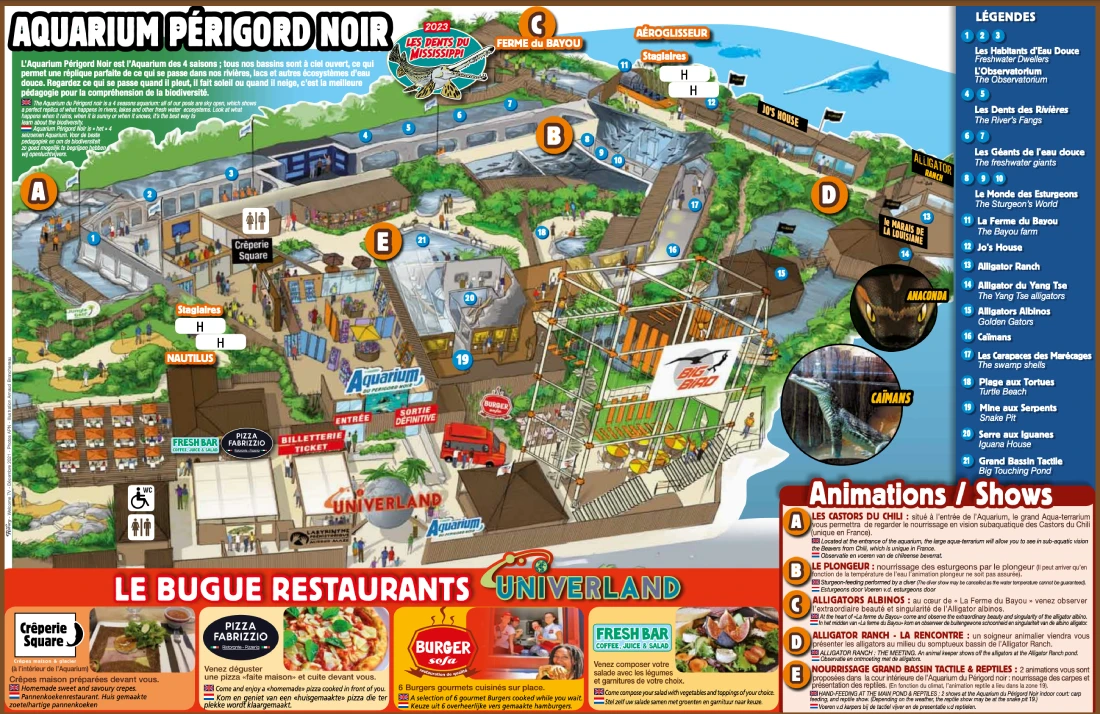Aquarium Périgord Noir Map (2024 – 2019)
Location: Dordogne, France
Years Active: 1989 – Active
Prepare to explore the Aquarium Périgord Noir’s delights!
Aquarium Périgord Noir in France is a major freshwater aquarium featuring over 3 million liters of water and housing 6,000 animals across 35 exhibits. Located in the Dordogne region, it showcases a variety of European aquatic life and offers interactive experiences such as feeding sessions and a crocodile park.
From the vibrant freshwater fish to the captivating marine life, this map provides you with an up-to-date view of every exhibit. Don’t miss the shark and stingray pools, where you may see these amazing creatures up close. It’s the ideal location for a family day, with a café serving freshly baked local pastries and lots of places to unwind.
Use the Aquarium Périgord Noir Map to plan ahead for a memorable trip!
Aquarium Périgord Noir Map 2024

Printable Aquarium Périgord Noir Map PDF 2024
Aquarium Périgord Noir Map 2021
Aquarium Périgord Noir Map 2019

FAQ
What is the meaning of perigord noir?
Périgord Noir refers to a region in Dordogne, France, known for its dense forests and historic sites. The name “Noir” (French for “Black”) reflects the area’s dark canopy of oak and chestnut trees, creating a distinctive landscape.
What does périgord mean in French?
Périgord in French refers to a historic region in southwestern France, now part of the Dordogne department. It is named after the ancient Gallic tribe, the Petrocorii, who originally inhabited the area.
What are the colors of the Perigord?
The Périgord region is traditionally divided into four colors: Périgord Noir (Black) for its dense oak forests, Périgord Blanc (White) for its limestone plateaus, Périgord Vert (Green) for its lush vegetation, and Périgord Pourpre (Purple) for its vineyards and wine production.
What is the geology of the Dordogne?
The geology of Dordogne features limestone plateaus, caves, and river valleys formed during the Jurassic and Cretaceous periods. The region is known for its karst landscapes, rich fossil deposits, and prehistoric caves such as Lascaux, showcasing evidence of ancient human habitation.

